.png)
Level: Under Graduate
Intake : 100 Seats
DTE Code: 636082310
Assessment Pattern: Semester + Annual
Study Mode: Full Time (04 Years)
Location: Universe Campus, Tathawade, Pune
B Pharmacy (Bachelor of Pharmacy) is a job-oriented graduate degree for science students who want to make a career in the pharmacy sector. B.Pharm. course duration is of four years with eight semesters. The B. Pharm. degree is one of the most sought after degrees because of its wide scope and vast career opportunities. B.Pharm syllabus covers all the facets of healthcare including bio-chemical areas that concern the preparation of medicines and implementing those for the right diagnosis. Students study about various subjects like Industrial Pharmacy, Pharmaceutical Analysis, Pharmacology, Human Anatomy and Physiology, Biochemistry, Medicinal Chemistry, Pharmacokinetics, Pharmacy Management etc. As per the B. Pharm. syllabus, an aspirant is instructed the intricacies of medicines and their effect on the human body along with the details of the chemical and organic properties of all the elements used. B. Pharm. is all about maintaining a standardized quality of people’s health and living. The program teaches students how to become attentive professionals so as to ensure the selection of the right drug for the right treatment. Pharmacy is an intricate art of preparing drugs and medicines with complete and in-depth knowledge about its ill-effects with legitimate data and instruction.
The course imparts complete theoretical and practical knowledge about drugs and aids in developing all the necessary skills to counsel patients on the use of medicines and drugs. The curriculum includes a number of practical experiments along with theory classes in allied subjects. Pharmacy education and profession in India up to the graduate level is regulated by the Pharmacy Council of India [PCI], a statutory body governed by the provisions of the Pharmacy Act, 1948 passed by the Indian Parliament.
Knowledge about health care and biomedical science with the skills to predict the nature of medicines and analyze the same for the betterment of humanity is one of the key responsibilities of a B. Pharm. professional. Successful completion of the degree entitles the student to become an ethical and knowledgeable pharmacist.
| Courses | Intake | DTE Code | Duration |
| B. Pharm | 100 | 636082310 | 04 Years |
| Sr. No. | Name of document | SC/ST | SBC/NT/ OBC | Open |
| 1 | MHT-CET Marksheet | yes | yes | yes |
| 2 | 12th Marksheet | yes | yes | yes |
| 3 | 10th Marksheet | yes | yes | yes |
| 4 | Leaving certificate | yes | yes | yes |
| 5 | Domecile/ birth certificate | yes | yes | yes |
| 6 | Nationality certificate | yes | yes | yes |
| 7 | Caste certificate | yes | yes | no |
| 8 | Caste validity certificate | yes | yes | no |
| 9 | Non-Creamylayer certificate | no | yes | no |
| 10 | Family annual income certificate | no | yes | yes |
| 11 | Aadhaar card | yes | yes | yes |
| Sr. No. | Name of Faculty | Contact Number |
| 1 | Dr. Dayanand Kannur | 09011064343 |
| 2 | Dr. Amir Shaikh | 09881785923 |
| 3 | Dr. Rahul Buchade | 7350432320 |
Notice: Admission Notice 2024-2025
Notice: DSY ACAP Notice
Notice: Merit List
Course Details:
Study for B.Pharm shall extend over a period of eight semesters (four academic years) and the syllabus for the program shall be prescribed by Pharmacy Council of India. The medium of instruction and examination shall be in English.
Theory and Laboratory courses:
Courses are broadly classified as Theory and Practical. Theory courses consist of lecture (L) and/or tutorial (T) hours, and Practical (P) courses consist of hours spent in the laboratory. Credits(C) for a course is dependent on the number of hours of instruction per week in that course, and is obtained by using a multiplier of one(1) for lecture and tutorial hours, and a multiplier of half(1/2) for practical (laboratory) hours. Thus, for example, at theory course having three lectures and one tutorial per week throughout the semester carries a credit of 4.Similarly, a practical having four laboratory hours per week throughout semester carries a credit of 2.
Minimum credit requirements:
The minimum credit points required for a ward of a B.Pharm. Degree is 208.These credits are divided into Theory courses, Tutorials, Practical, Practice School and Project over the duration of eight semesters. The credits are distributed semester-wise as shown in Table IX. Courses generally progress in sequences, building competencies and their positioning indicates certain academic maturity on the part of the learners. Learners are expected to follow thesemester-wise schedule of courses given in the syllabus.
Table-I: Course of study for semester I
| Course code | Name of the course | No.of hours | Tutorial | Credit points |
| BP101T | Human Anatomy and Physiology I– Theory | 3 | 1 | 4 |
| BP102T | Pharmaceutical Analysis I – Theory | 3 | 1 | 4 |
| BP103T | Pharmaceutics I – Theory | 3 | 1 | 4 |
| BP104T | Pharmaceutical Inorganic Chemistry – Theory | 3 | 1 | 4 |
| BP105T | Communication skills – Theory * | 2 | - | 2 |
| BP106RBTBP106RMT | Remedial Biology/Remedial Mathematics – Theory* | 2 | - | 2 |
| BP107P | Human Anatomy and Physiology – Practical | 4 | - | 2 |
| BP108P | Pharmaceutical Analysis I – Practical | 4 | - | 2 |
| BP109P | Pharmaceutics I – Practical | 4 | - | 2 |
| BP110P | Pharmaceutical Inorganic Chemistry – Practical | 4 | - | 2 |
| BP111P | Communication skills – Practical* | 2 | - | 1 |
| BP112RBP | Remedial Biology – Practical* | 2 | - | 1 |
| Total | 32/34$/36# | 4 | 27/29$/30# | |
Table-II: Course of study for semester II
| Course Code | Name of the course | No.of hours | Tutorial | Credit points |
| BP201T | Human Anatomy and Physiology II – Theory | 3 | 1 | 4 |
| BP202T | Pharmaceutical Organic Chemistry I – Theory | 3 | 1 | 4 |
| BP203T | Biochemistry – Theory | 3 | 1 | 4 |
| BP204T | Pathophysiology – Theory | 3 | 1 | 4 |
| BP205T | Computer Applications in Pharmacy – Theory * | 3 | - | 3 |
| BP206T | Environmental sciences – Theory * | 3 | - | 3 |
| BP207P | Human Anatomy and Physiology II –Practical | 4 | - | 2 |
| BP208P | Pharmaceutical Organic Chemistry I– Practical | 4 | - | 2 |
| BP209P | Biochemistry – Practical | 4 | - | 2 |
| BP210P | Computer Applications in Pharmacy – Practical* | 2 | - | 1 |
| Total | 32 | 4 | 29 | |
*Non University Examination (NUE)
Table-III: Course of study for semester III
| Course code | Name of the course | No.of hours | Tutorial | Credit points |
| BP301T | Pharmaceutical Organic Chemistry II – Theory | 3 | 1 | 4 |
| BP302T | Physical Pharmaceutics I – Theory | 3 | 1 | 4 |
| BP303T | Pharmaceutical Microbiology – Theory | 3 | 1 | 4 |
| BP304T | Pharmaceutical Engineering – Theory | 3 | 1 | 4 |
| BP305P | Pharmaceutical Organic Chemistry II – Practical | 4 | - | 2 |
| BP306P | Physical Pharmaceutics I – Practical | 4 | - | 2 |
| BP307P | Pharmaceutical Microbiology – Practical | 4 | - | 2 |
| BP 308P | Pharmaceutical Engineering –Practical | 4 | - | 2 |
| Total | 28 | 4 | 24 | |
Table-IV: Course of study for semester IV
| Course code | Name of the course | No.of hours | Tutorial | Credit points |
| BP401T | Pharmaceutical Organic Chemistry III– Theory | 3 | 1 | 4 |
| BP402T | Medicinal Chemistry I – Theory | 3 | 1 | 4 |
| BP403T | Physical Pharmaceutics II – Theory | 3 | 1 | 4 |
| BP404T | Pharmacology I – Theory | 3 | 1 | 4 |
| BP405T | Pharmacognosy and Phytochemistry I– Theory | 3 | 1 | 4 |
| BP406P | Medicinal Chemistry I – Practical | 4 | - | 2 |
| BP407P | Physical Pharmaceutics II – Practical | 4 | - | 2 |
| BP408P | Pharmacology I – Practical | 4 | - | 2 |
| BP409P | Pharmacognosy and Phytochemistry I – Practical | 4 | - | 2 |
| Total | 31 | 5 | 28 | |
Table-V: Course of study for semester V
| Course code | Name of the course | No.of hours | Tutorial | Credit points |
| BP501T | Medicinal Chemistry II – Theory | 3 | 1 | 4 |
| BP502T | Industrial PharmacyI– Theory | 3 | 1 | 4 |
| BP503T | Pharmacology II – Theory | 3 | 1 | 4 |
| BP504T | Pharmacognosy and Phytochemistry II– Theory | 3 | 1 | 4 |
| BP505T | Pharmaceutical Jurisprudence – Theory | 3 | 1 | 4 |
| BP506P | Industrial PharmacyI – Practical | 4 | - | 2 |
| BP507P | Pharmacology II – Practical | 4 | - | 2 |
| BP508P | Pharmacognosy and Phytochemistry II –Practical | 4 | - | 2 |
| Total | 27 | 5 | 26 | |
Table-VI: Course of study for semester VI
| Course code | Name of the course | No.of hours | Tutorial | Credit points |
| BP601T | Medicinal Chemistry III – Theory | 3 | 1 | 4 |
| BP602T | Pharmacology III – Theory | 3 | 1 | 4 |
| BP603T | Herbal Drug Technology – Theory | 3 | 1 | 4 |
| BP604T | Biopharmaceutics and Pharmacokinetics –Theory | 3 | 1 | 4 |
| BP605T | Pharmaceutical Biotechnology – Theory | 3 | 1 | 4 |
| BP606T | Quality Assurance –Theory | 3 | 1 | 4 |
| BP607P | Medicinal chemistry III – Practical | 4 | - | 2 |
| BP608P | Pharmacology III – Practical | 4 | - | 2 |
| BP609P | Herbal Drug Technology – Practical | 4 | - | 2 |
| Total | 30 | 6 | 30 | |
Table-VII: Course of study for semester VII
| Course code | Name of the course | No.of hours | Tutorial | Credit points |
| BP701T | Instrumental Methods of Analysis – Theory | 3 | 1 | 4 |
| BP702T | Industrial PharmacyII – Theory | 3 | 1 | 4 |
| BP703T | Pharmacy Practice – Theory | 3 | 1 | 4 |
| BP704T | Novel Drug Delivery System – Theory | 3 | 1 | 4 |
| BP705P | Instrumental Methods of Analysis –Practical | 4 | - | 2 |
| BP706PS | Practice School* | 12 | - | 6 |
| Total | 28 | 5 | 24 | |
* Non University Examination (NUE)
Table-VIII: Course of study for semester VIII
| Course code | Name of the course | No.of hours | Tutorial | Credit points |
| BP801T | Biostatistics and Research Methodology | 3 | 1 | 4 |
| BP802T | Social and Preventive Pharmacy | 3 | 1 | 4 |
| BP803ET | Pharma Marketing Management | 3+3=6 | 1+1=2 | 4+4=8 |
| BP804ET | Pharmaceutical Regulatory Science | |||
| BP805ET | Pharmacovigilance | |||
| BP806ET | Quality Control and Standardization of Herbals | |||
| BP807ET | Computer Aided Drug Design | |||
| BP808ET | Cell and Molecular Biology | |||
| BP809ET | Cosmetic Science | |||
| BP810ET | Experimental Pharmacology | |||
| BP811ET | Advanced Instrumentation Techniques | |||
| BP812ET | Dietary Supplements and Nutraceuticals | |||
| BP813PW | Project Work | 12 | - | 6 |
| Total | 24 | 4 | 22 | |
Table-IX: Semester wise credits distribution
| Semester | Credit Points |
| I | 27/29$/30# |
| II | 29 |
| III | 26 |
| IV | 28 |
| V | 26 |
| VI | 26 |
| VII | 24 |
| VIII | 22 |
| Extracurricular/ Co curricular activities | 01* |
| Total credit points for the program | 209/211$/212# |
* The credit points assigned for extracurricular and or co-curricular activities shall be given by the Principals of the colleges and the same shall be submitted to the University. The criteria to acquire this credit point shall be defined by the colleges from time to time.
AS PER FEES REGULATING AUTHORITY, MAHARASHTRA STATE.
Scholarship as per Government Rules.
| Name of the course | Total (In Rupees) |
|---|---|
| B. Pharmacy | 1,75,000.00 |
M. Pharmacy
|
1,75,000.00 |
| Pharm. D. (Doctor of Pharmacy) | 2,00,000.00 |
| Pharm. D. Post Baccalaureate | 2,00,000.00 |
| Diploma in Pharmacy | 90,000.00 |
The Indian pharmaceutical industry is one of the largest pharma industries in the world. This increases the scope of pharma studies in India. Pharmacy is a noble profession that provides a satisfying career and high-paying jobs. Like many fields within and outside of the health care sector, pharmacy has seen changes over the past few decades because of economic realities and changes in health care practice overall. Career options are not only available in India, but worldwide. Research and Development is a major area in the pharma industry, where new drug development, formulation development, analysis and toxicological studies are performed. These analyses are done through sophisticated and state-of-the-art machines. For research and development purposes, skilled researchers and technicians are in high demand and so pharmacy as a career is gaining immense recognition. The scope of pharmacy today includes global healthcare which has given rise to clinical research, medicinal manufacturing and marketing, for improvement or maintenance of a patient’s quality of life and for providing them with appropriate drug information.
Indira College of Pharmacy is actively involved in conducting various certification programs, seminars, guest lectures and training sessions for budding pharmacy students.
These programs not only help them in developing as professional trained pharmacist but also nurture them in a way that they become globally competent and work towards the sufferings of mankind.
Successful completion of the course allows the students to opt for the multidisciplinary further education opportunities.
Pharmacy is a unique profession that provides an expertise in manufacturing of medicines, health-care service to patient, ensures safe and effective use of medication for better health and well-being.State-of-the-art laboratories are the back bone of any Pharmacy College. At Indira College of Pharmacy, the institute has well equipped and highly sophisticated laboratories; instrumentation facility room which satisfies the practical and research need of the students.The college has sufficient number of labs under different departments for practical training in all the major areas of pharmacy. The labs are well furnished and designed to permit students ample working space.
ICP library is a very special place in the Universe campus of Indira Group Institutes, with its rich collection of books and journals, e-journals, CDs etc. in the field of Pharmacy. It is a most lively place on the campus providing a comfortable and friendly environment that enables learning and advancement of knowledge.
Aims & Objectives of ICP Library
The Library aims at providing effective information services to students & faculty members with improved and easy access to the latest information & projects and creates a healthy learning environment.
ICP Library Collection
The Library has developed an excellent collection of books, Journals, magazines, and newspapers both national and International. The library has also developed non book collection which includes e-journals, e-books, CDs. Besides this it also maintains separate collection of reference books, bound volumes of journals and project reports.
| No. | Name of the Subject | Titles | Volumes |
| 1 | Pharmaceutics | 228 | 1434 |
| 2 | Pharmaceutical Chemistry | 241 | 1975 |
| 3 | Pharmacology | 251 | 1342 |
| 4 | Pharmacognosy | 44 | 412 |
| 5 | Reference | 104 | 209 |
| 6 | Novels | 277 | 316 |
| 7 | Others | 153 | 589 |
| Total | 1298 | 6277 | |
The entire collection has been classifies using Dewey Decimal Classification Scheme and SLIM 21 software is used in the library. Library patron can search resources through OPAC.
E-Resources At ICP Library :
ICP library subscribed e-journals available through Bentham and Elsevier details are as follows
Library Services Document Delivery:
To fulfil the information needs of the end user through information/document supply is a document delivery service.
Book bank:
The scheme is initiated by the Social Welfare Department for SC/ST students which assist such students to avail books for whole semester. The student is suppose to return the same on his/her completion of term.
SDI Selective Dissemination of Information:
SDI service is a model service which ensures that the periodicals and journals subscribed by the library are effectively read by all users.
Current Awareness Service (CAS):
CAS enables the students and faculties to become aware of the new arrivals in the library are it books, CDs, periodicals, journals. The bibliographic information of the new items in the library in a particular month is listed and circulated to all users to make them aware of the new arrivals in the library.
Display of News Display of New arrivals:
Display of Xerox copies of articles published online.
Information Alert Services:
ICP library offered following current awareness services to alert users about the latest information of their interest: List of Additions, New arrivals List-you-miss News items display Useful articles display Display of book Reviews
Current Contents:
The Current contents service is useful to many students and faculties who are short of time and wish to know at a glance about the new articles published in the journals & periodicals. The contents page of important subject specific journals & periodicals is scanned and emailed to all users to enable them to understand the topics under discussion for the month in various journals & periodicals. This service can be said to save the time of the users.
Inter library loan:
The library offers inter library loan service to its patrons for the books and docs not available in thelibrary by procuring them from the other libraries within the reach.
Reference service:
The library upholds a separate collection like encyclopedias, dictionaries, handbooks, atlases etc. Readers may approach to the Librarian’s desk for any of such services.
Photocopying:
The library has a separate Xerox machine within its ambiance to serve better.
The animal house facility is available to boost the teaching, training and research facilities and to meet the growing demand for high quality laboratory animals in emergent field of experimental Pharmacology and for post graduate students. Qualified veterinarians and technical personnel are always at hand to help carry out research.Institutional Animal Ethical Committee is formed according to CPCSEA guidelines to monitor the learning and research activities
The IGI has truly world class, campus wide state-of-the-art information technology tools that are designed to meet the computing and communication needs of the Institute. IGI has a fast, reliable and robust computer network of more than 2000 Nodes. This network has Gigabit fiber backbone connectivity to all the blocks and departments. All the departments are connected through layer 2 & 3 switches to provide 100 mbps connectivity at the user end.The central server room has advance server setup which includes Anti virus server, Domain controller, Firewall, DB servers.
Good communication skills are indispensable for the success of any professional. The English language, in particular, has become essential in the lives of young people who aspire to advance their careers anywhere in the world.
Language learning is not the same as learning any other subject. It is not confined to writing an examination and getting a degree or award. The four skills of reading, writing, listening and speaking have to be practiced. Being able to communicate well is the most important factor when seeking a placement in a company or institution.Communication involves one’s ability to listen carefully so as to grasp the meaning and to respond in turn with apt words and clarity of pronunciation.
The language laboratory plays an important role in this process.Our Language Laboratory in houses Advanced Pentium Computer Systems and Innovative products such as digital multimedia control, headsets and microphones, the interactive response control, etc. which are very useful for students learning languages for communication. It is very useful for assessing students' speech & provides students with the technical tools to get the best samples of pronunciation of the language. The electronic devices used in the laboratory will stimulate the eyes and ears of the learner to acquire the language quickly and easily. The laboratory’s collection is designed to assist learners in the acquisition and maintenance of aural comprehension, oral and written proficiency, and cultural awareness. It offers web-assisted materials and videotaped off-air recordings in the target language.
The laboratory provides a facility which allows the student to listen to model pronunciation, repeat and record the same, listen to their performance and compare with the model, and do self-assessment. It gives every learner of any language freedom to learn at their own pace; it is flexible and does not necessarily require a teacher all the time. At the same time, the teacher provides assistance individually and collectively.
Indira offers one of the largest hostel facilities amongst Graduate Education Institutes in Maharashtra. The Boys and Girls Hostel comes up with 1500 student capacity and excellent amenities such as Wi-Fi connectivity, Back –up and a hygienic mess. Around 200 students will be accommodated this year in the hostel. Students opting to stay in the hostel will have to book their room at the earliest, as the allotment is done on a first come first basis.
Transport facility is available on payment basis, to students and employees from all major destinations in Pune city and adjoining areas. The service is outsourced to a professional service provider and is controlled by Administration department of the college.
Indira College of pharmacy has a spacious campus with its own auditorium, conference room, and sports centre. The students have all the adequate facilities for indoor and outdoor games ,sports and extra-curricular activities. Students can indulge in various delicacies provided in cafeteria and relax with friends. For overall physical development of students, campus provides them with gym facilities.
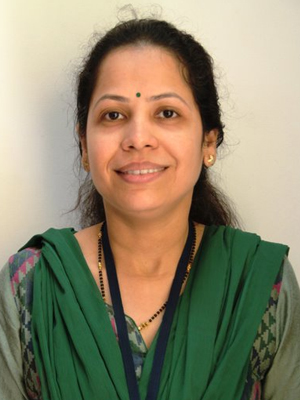
Dr.Madhur Chandrasekhar Kulkarni
Head of the Department Pharmaceutics
Qualification: Ph.D. (Tech.)
Industrial Exp:8.2 years
Academic Exp:9 years
Research Papers:12
Patents:1
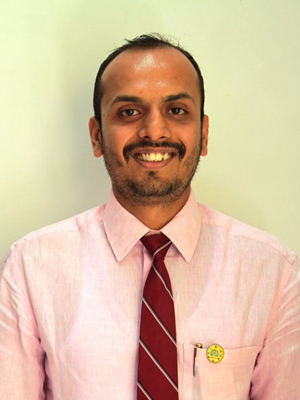
Amir Afzal Shaikh
Associate Professor
Qualification: M. Pharm, PhD, DIPL.
Industrial Exp: - years
Academic Exp:12 years
Research Papers:18
Books Written:3
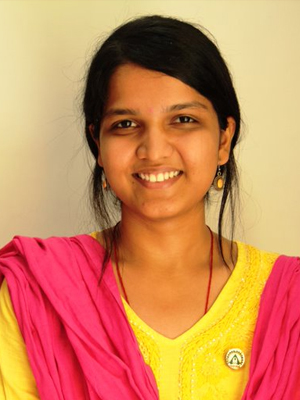
Roopal Sunil Bhat
Assistant Professor
Qualification: M. Pharm - Pharmaceutics
Industrial Exp: - years
Academic Exp:3.6 years
Research Papers:0
Books Written:0
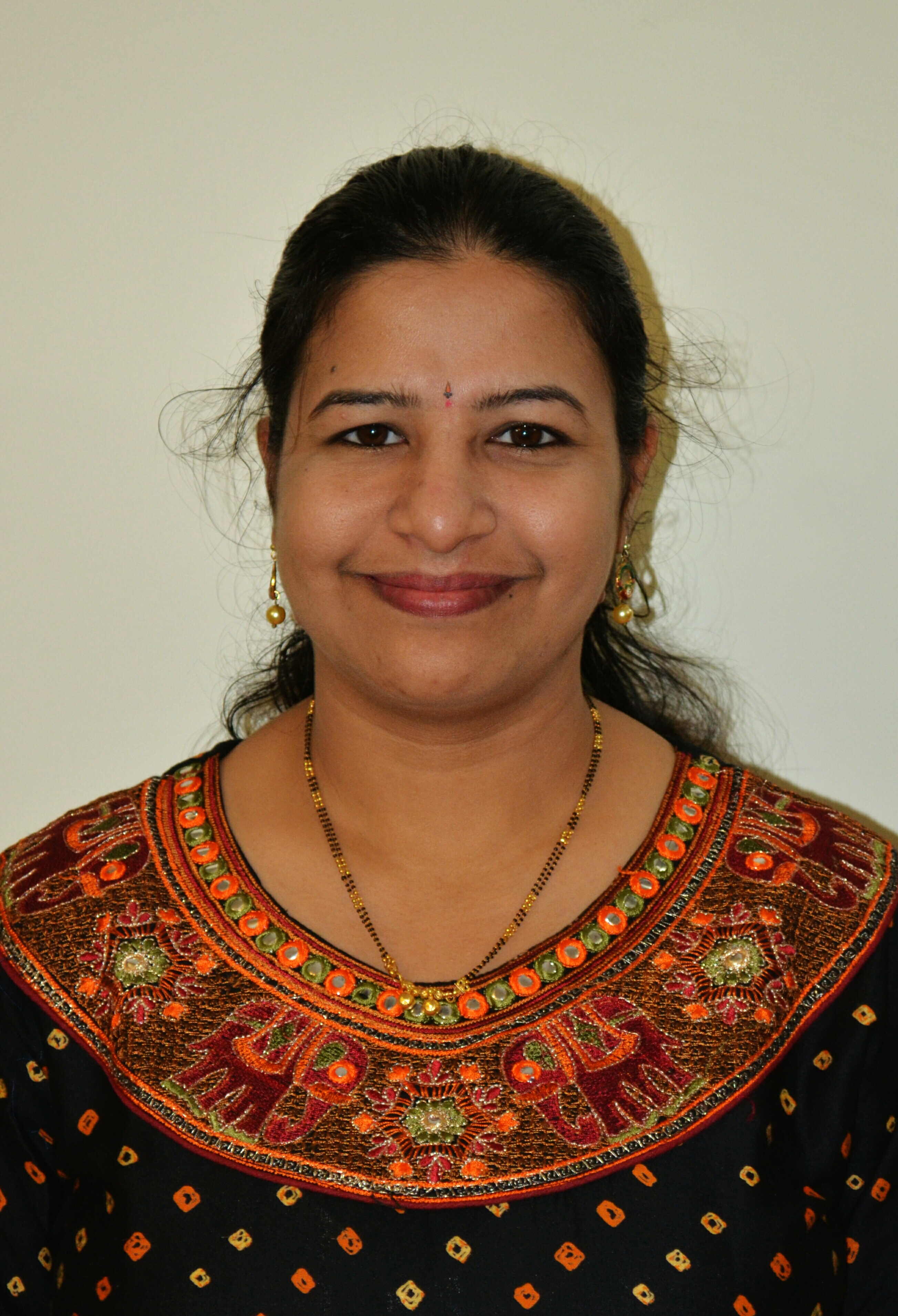
Meghna Mandar Dabhadkar
Assistant Professor
Qualification: M. Pharm(Pharmaceutics), PGDBM
Industrial Exp: 6 years
Academic Exp: 3 years
Research Papers: 0
Books Written: 0
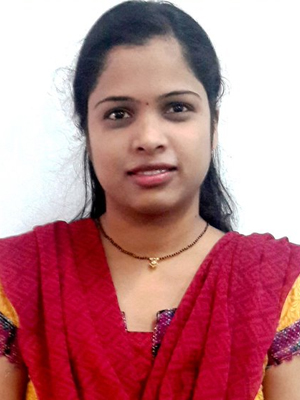
Ms. Poonam Subhash Karekar
Assistant Professor
Qualification: M. Pharmacy (Biopharmaceutics)
Industrial Exp: 2.8 years
Academic Exp:6.4 years
Research Papers: 13
Books Written: 0
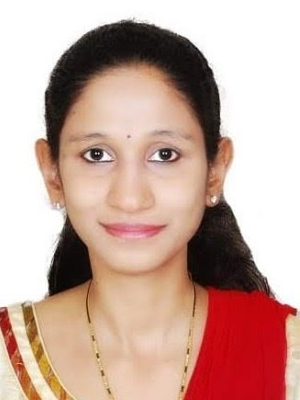
Mrs. Kalyani Pruthviraj Dhavale
Assistant Professor
Qualification: M.Pharm (Pharmaceutics)
Industrial Exp: - years
Academic Exp: 6 months
Research Papers:2
Books Written:0
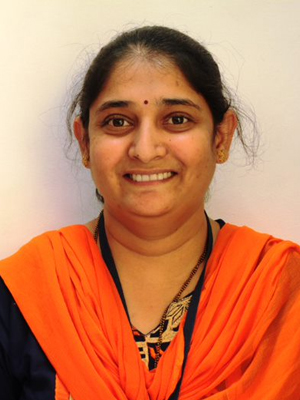
Dr.Suvarna Ingale
Professor and HOD –Dept. of Pharmacology and Pharm. D
Qualification: M. Pharm(Pharmacology), PhD
Industrial Exp: - years
Academic Exp:18
Research Papers:31
Books Written:2
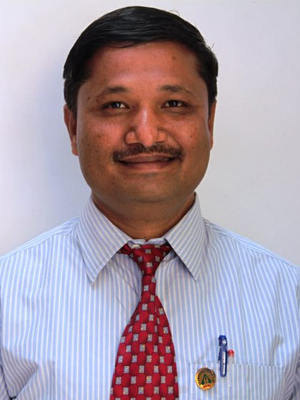
Dr.Subash Kumbhar
Assistant Professor
Qualification: M. Pharm(Biopharmaceutics), Phd
Industrial Exp: - years
Academic Exp: 15 years
Research Papers: 21
Books Written: 0
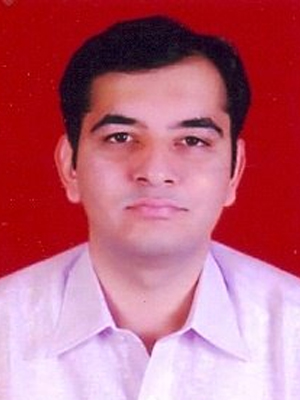
Dr.Digambar Ambikar
Assistant Professor –Pharmacology
Qualification: M. Pharm, Ph. D
Industrial Exp: - years
Academic Exp: 13 years
Research Papers: 18
Books Written: 0

Ms. Sneha Joshi
Assistant Professor - Pharmacology
Qualification: M. Pharmacy (Pharmacology)
Industrial Exp: - years
Academic Exp: 6 Years
Research Papers: 0
Books Written: 0
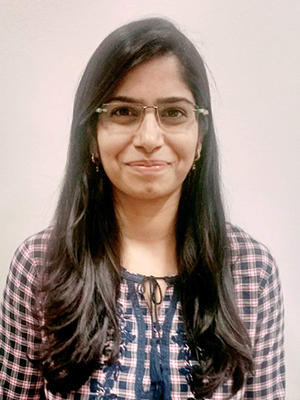
Ms. Tejal Mulay
Assistant Professor - Pharmacology
Qualification: M. Pharmacy (Pharmacology)
Industrial Exp: - years
Academic Exp: 2 years
Research Papers: 0
Books Written: 0
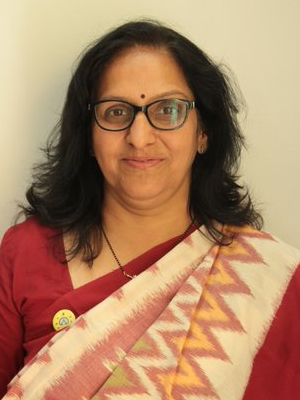
Dr. (Mrs.) Anagha Joshi
Principal & HOD (Pharmaceutical Chemistry)
Qualification: M.Pharm;Ph.D.
Industrial Exp: - years
Academic Exp: 25 years
Research Papers: 8
Books Written: 2
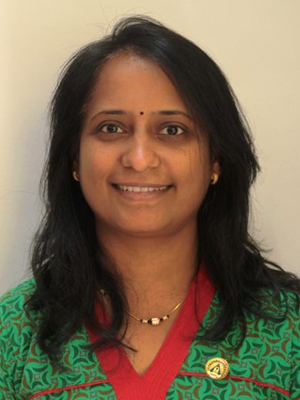
Dr. (Mrs.) Archana M. Karnik
Assistant Professor
Qualification: M.Pharm(Pharmaceutical Chemistry)Ph.D.
Industrial Exp: - years
Academic Exp: 12 years 5 months
Research Papers: 7
Books Written: 0
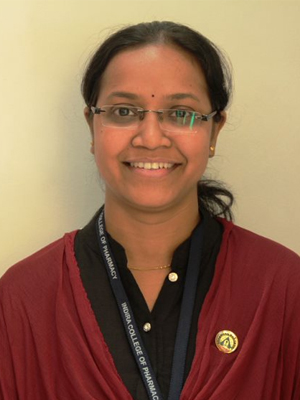
Dr.Manasi Jayant Wagdarikar
Assistant Professor
Qualification: M. Pharm, Ph. D
Industrial Exp: - years
Academic Exp: 12 years
Research Papers: 10
Books Written: 2
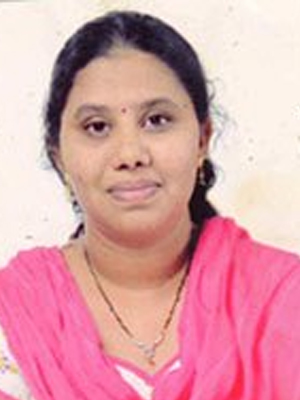
Mrs. Rutuja Vijay Kamble
Assistant Professor
Qualification: Master in Pharmacy (Pharmaceutical Chemistry)
Industrial Exp: - years
Academic Exp: 8 years 7 months
Research Papers: 04
Books Written: 0

Sunil Ramhari Kakad
Assistant Professor
Qualification: M. Pharm (Pharmaceutical Chemistry)
Industrial Exp: - years
Academic Exp: 12 years
Research Papers: 03
Books Written: 0
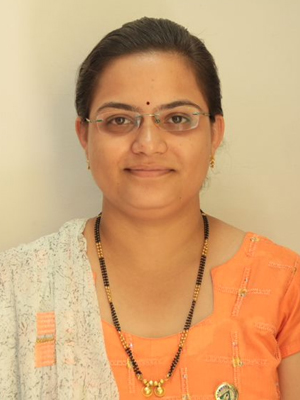
Amruta Walvekar
Assistant Professor
Qualification: M. Pharm (Pharmaceutical Chemistry)
Industrial Exp: - years
Academic Exp: 4.9 years
Research Papers: 0
Books Written: 0
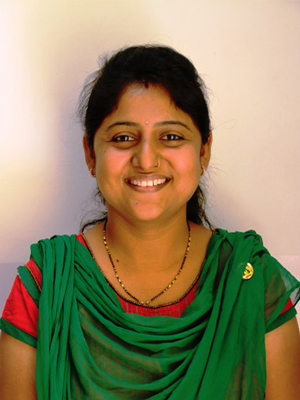
Pallavi Chouhan
Assistant Professor
Qualification: M. Pharm (Quality Assurance Techniques)
Industrial Exp: 10 years
Academic Exp: 3.8 years
Research Papers: 0
Books Written: 0

Dr. Rahul Subhash Buchade
Assistant Professor – Pharmaceutical Chemistry
Qualification: M. Pharmacy ,Ph.D
Industrial Exp: - years
Academic Exp: 12
Research Papers: 6
Books Written: 0
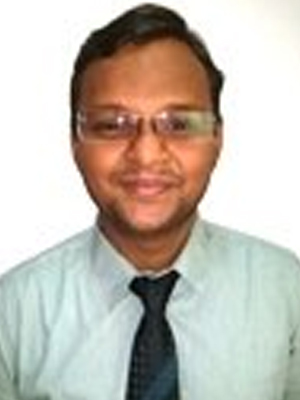
Shubham Vijay Pawar
Assistant Professor
Qualification: M Pharmacy (Pharmaceutical Chemistry)
Industrial Exp: - years
Academic Exp: 2.1 years
Research Papers: 0
Books Written: 0
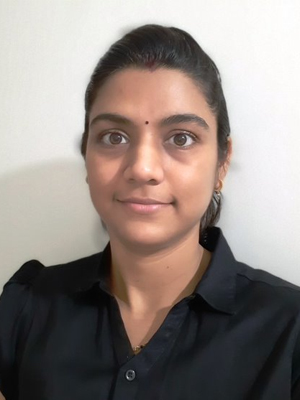
Mrs. Nikita Kishor Kale
Assistant Professor
Qualification: M. Pharm
Industrial Exp: - years
Academic Exp: 06 years
Research Papers: 2
Books Written: 0
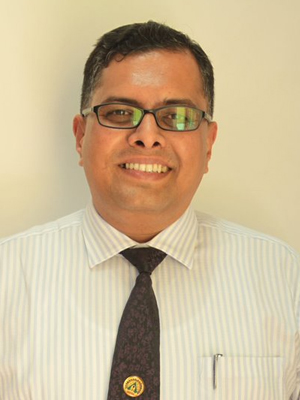
Dr. Dayanand M. Kannur
Vice Principal & Professor
Qualification: M. Pharm., Ph.D.
Industrial Exp: - years
Academic Exp: 17 years
Research Papers: 16
Books Written: -
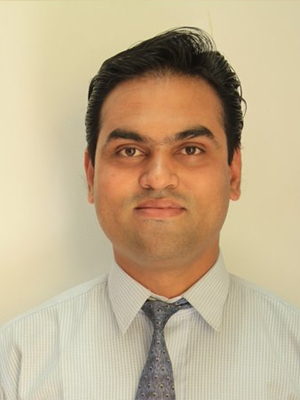
Mr. Shriniwas Pramod Patil
Assistant Professor
Qualification: M. Pharm. (Pharmacognosy)
Industrial Exp:- years
Academic Exp: 8 years
Research Papers: 11
Books Written: 0
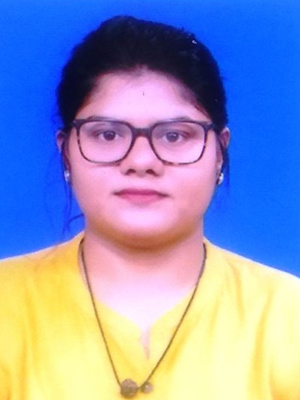
Kiran Sanjay Kudale
Assistant Professor
Qualification: M.Pharmacy(Pharmacognosy)
Industrial Exp: - years
Academic Exp: 10 years
Research Papers: 0
Books Written: 0
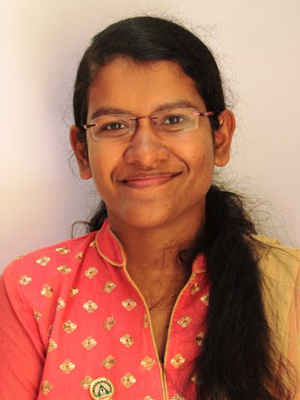
Dr.Beena Annie Sam
Assistant Professor
Qualification: Pharm.D
Industrial Exp: - years
Academic Exp: 4 years
Research Papers: 0
Books Written: 0
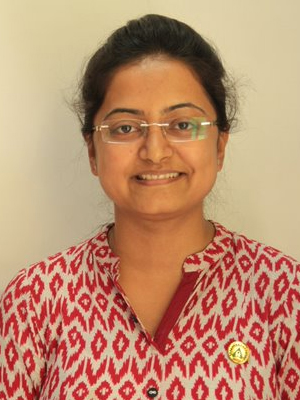
Dr. Shraddha P. Devarshi
Assistant Professor
Qualification: Doctor of Pharmacy- PharmD
Industrial Exp: - years
Academic Exp: 3 years 1 month
Research Papers: 05
Books Written: 1
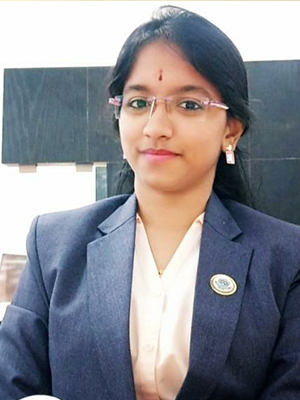
Dr.Divya Ashok Kulkarni
Assistant professor
Qualification: Pharm D
Industrial Exp: - years
Academic Exp: 4 years
Research Papers: 0
Books Written: 0
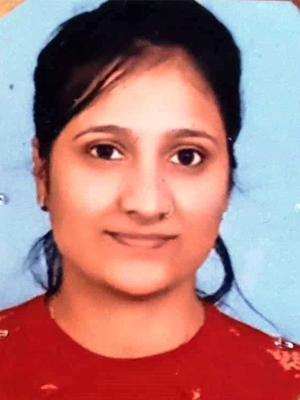
Dr. Pooja Sharda Janardan
Assistant Professor
Qualification: Pharm.D
Industrial Exp: - years
Academic Exp: 11 months
Research Papers: 3
Books Written: 0
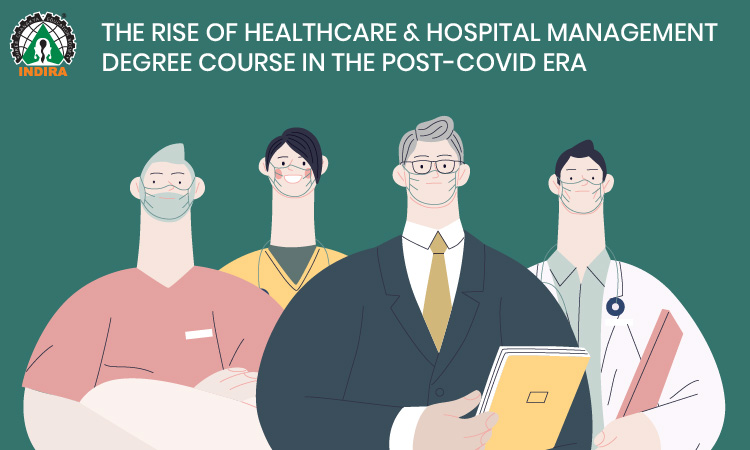
The Rise of Healthcare & Hospital Management Degree Course in the Post-COVID Era
Published on June 24, 2021
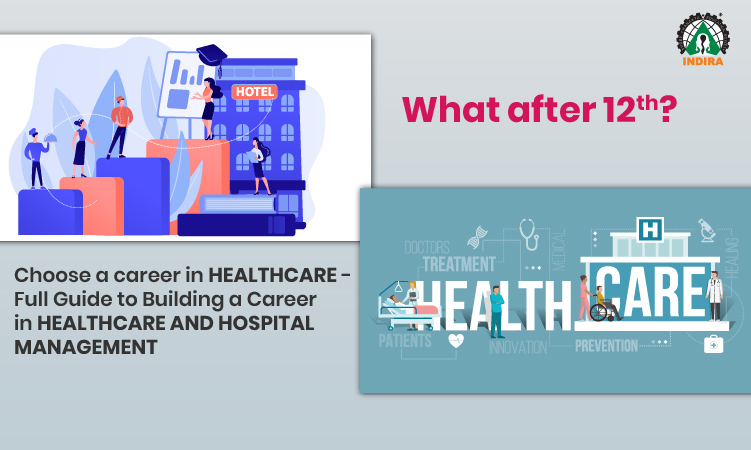
What after 12th? Choose a career in Healthcare – Full Guide to Building a Career in Healthcare and Hospital Management
Published on July 8, 2021

Healthcare Management: An Emerging Career Option
Published on September 17, 2020

HEALTH AND FITNESS FOR BUSY PEOPLE
Published on November 21, 2018